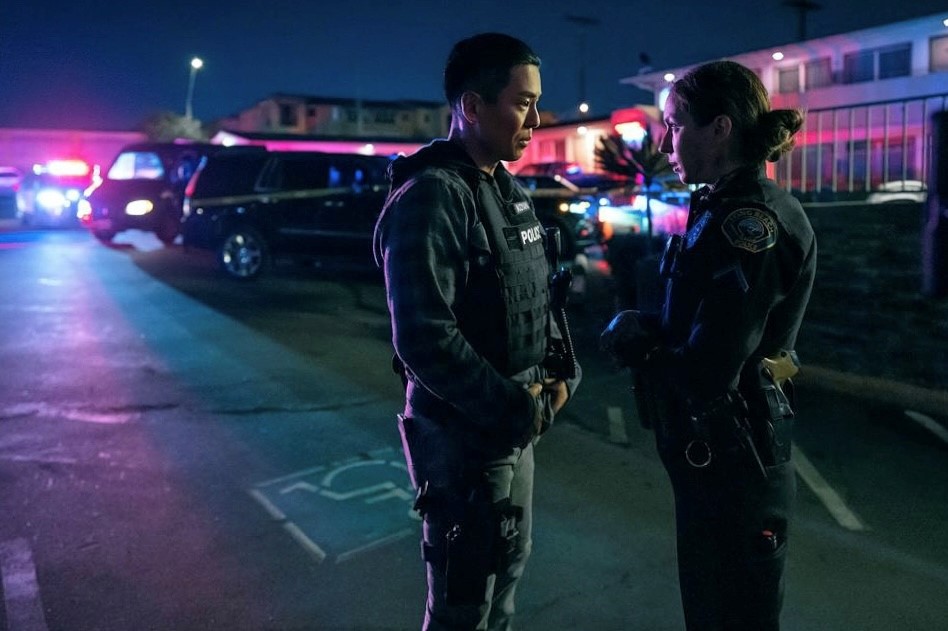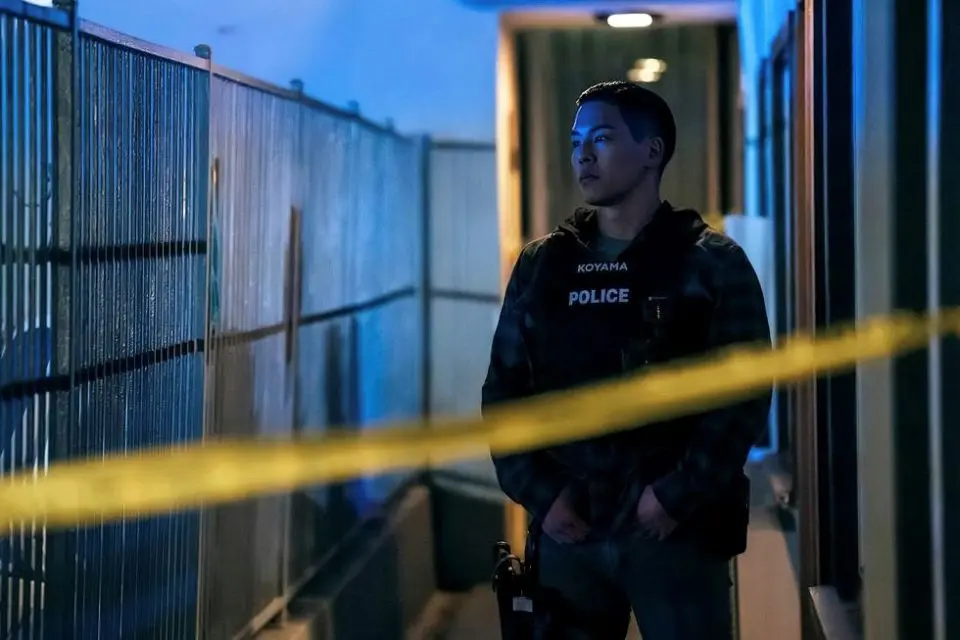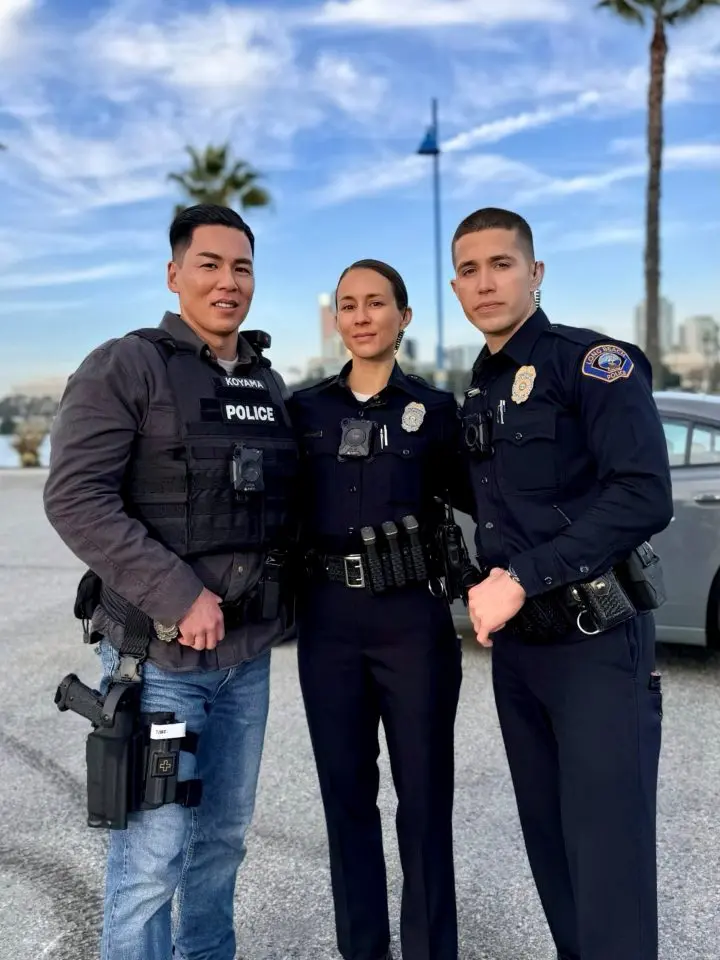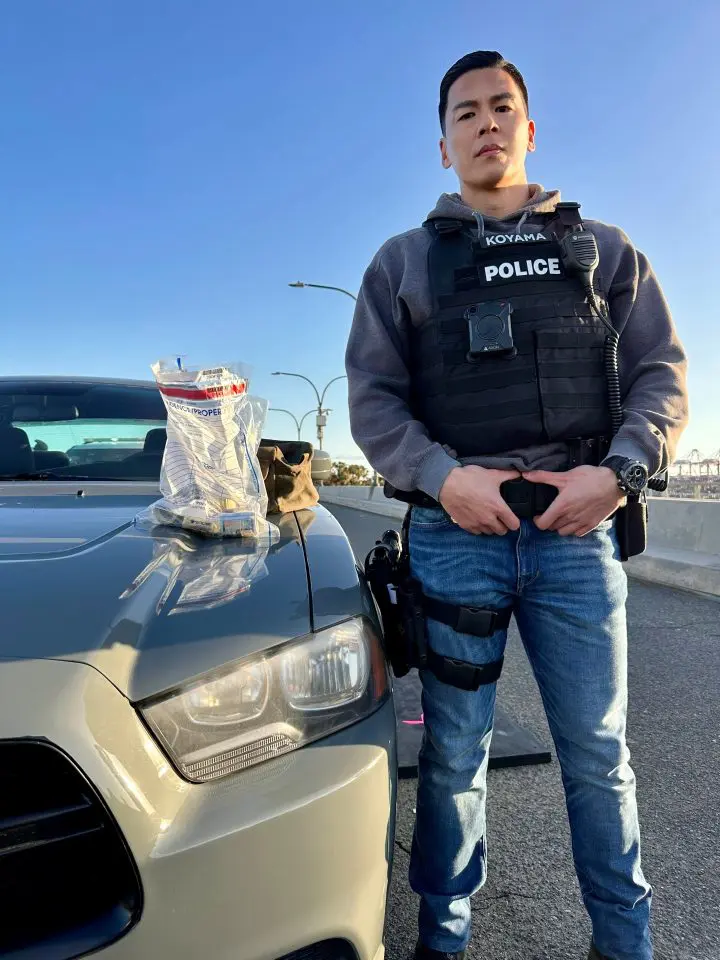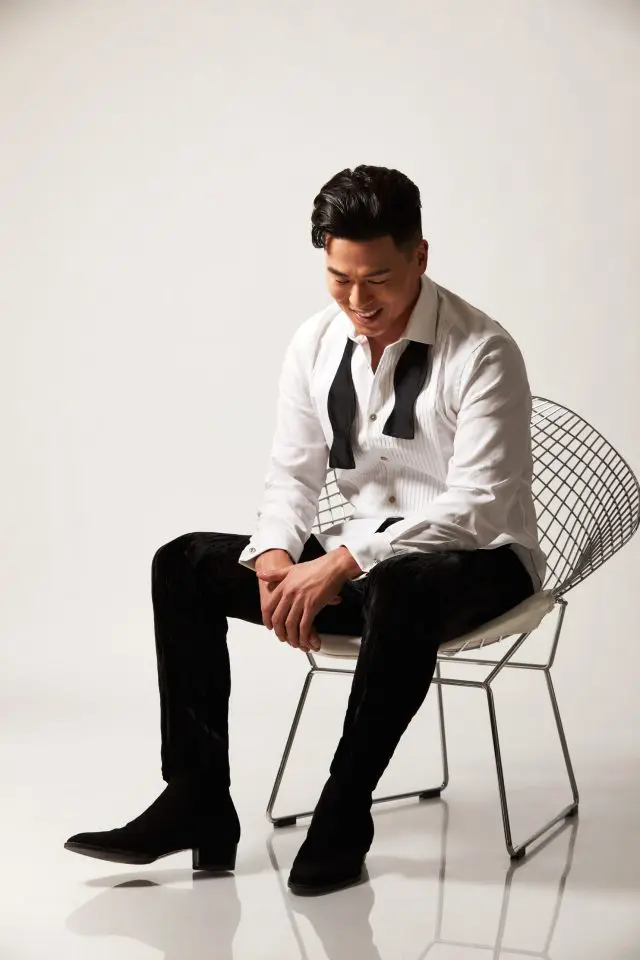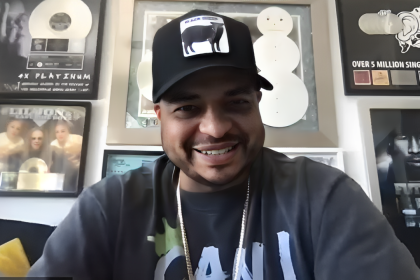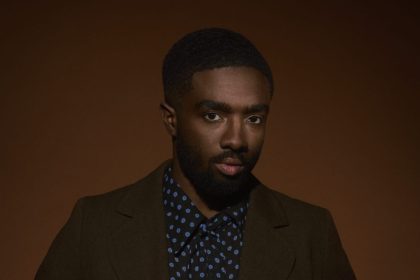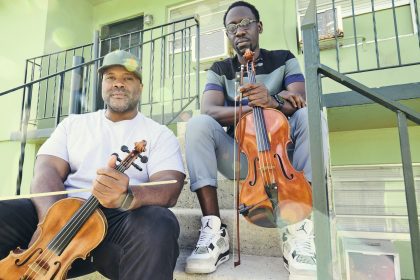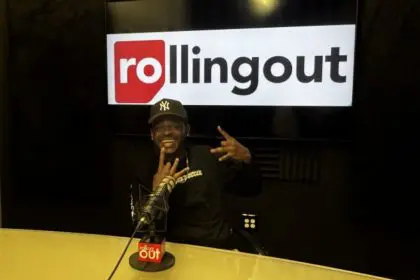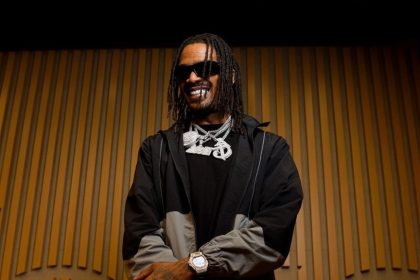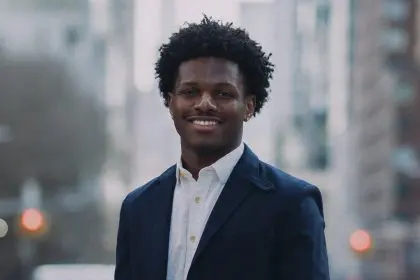Rich Ting embodies the quintessential Renaissance man of modern Hollywood. A fourth-generation Asian American from Los Angeles, Ting’s journey from Yale football quarterback to accomplished actor represents a unique trajectory in an industry struggling with representation. With dual J.D./M.B.A. degrees under his belt and roles spanning from HBO’s “Warrior” to Paramount’s “Tulsa King,” Ting now takes center stage in Amazon Prime’s “On Call,” Wolf Entertainment’s first streaming series, where he portrays Sgt. Tyson Koyama, marking a groundbreaking moment for Asian American representation in law enforcement roles on television.
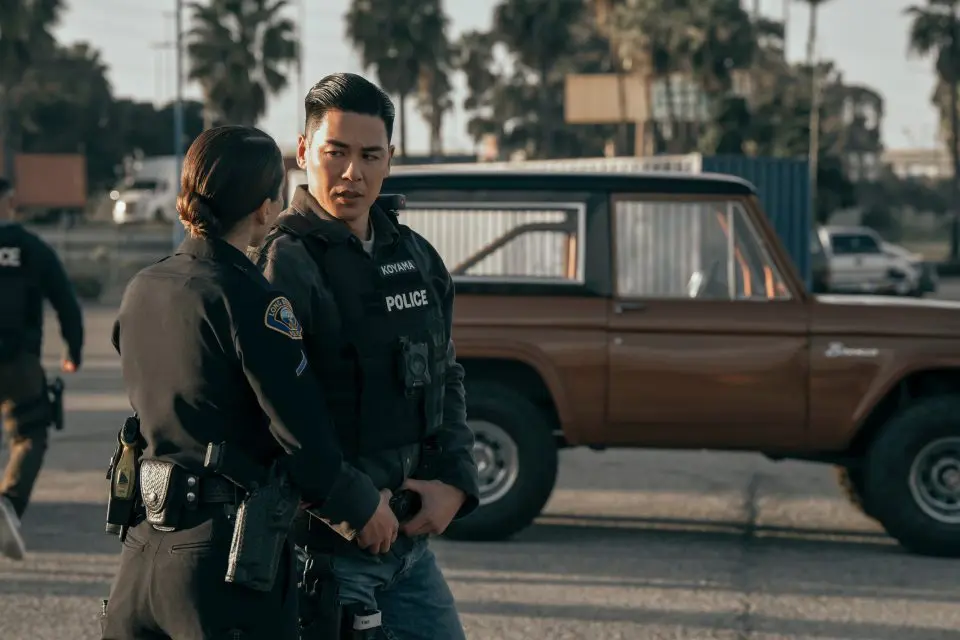
What does it mean to be a fourth-generation LA native breaking ground in Hollywood?
It’s been a long journey. This definitely hasn’t been an overnight success story for me, but it’s about the dirt and about the grind. And really sticking to what you love. Fortunately for me, I love this industry. I love being an artist. I love the craft. And I’ve been trying to do a better job of looking back on my past and my entire journey overall, just because I get caught up a lot of times with the day to day, and I’m very blessed and grateful, for I think it’s 19 years now I’ve been in the game, and to see where I started to see where the industries come from, especially back in the early 2000s to the present time. We’re making progress as a community.
We’re making progress, as far as diversity and multiculturalism is concerned, on the big screen, and what Hollywood has opened up to. So I’m really proud to be a part of that journey with everyone.
How has your athletic background shaped your acting career?
That’s one of my advantages. I was an athlete, probably the first half of my life. With the first goal of playing collegiate one, Division One collegiate football, and I think just being an athlete from the age of 4, starting Pop Warner football at the age of 8, having grown men at the age of 8, yell at me and curse at me and tell me that I’m too slow, and that I’m not good enough. I think that really set a really good foundation to be coachable, to be directable, to take criticism. And I’m very blessed with that now, as I look back on my childhood, because I’m not here alone, I represent all the coaches, all the teachers.
I represent my family, my parents, and to know that so much effort and time went into creating this literally. I’m proud to bring all of that to every project that I’m a part of, and I pride myself on being a team player on being coachable on being accountable. I rely on my teammates to pick me up. I rely on my castmates to pick me up, and I’m always there, as well, to lead the charge. I played quarterback my whole life, and always down to lead. So I think outside the physicality of the athletic world, it’s more about the mentality, more about the emotional side, the connectivity with your teammates, with your coworkers.
I think that’s been my biggest advantage bringing that element to the artistic world in this industry, because from the other actors I’ve met as well as producers, writers, directors. I feel fortunate that I think I’m one of the minorities that come from the athletic background, and to me I just want to contribute in the best way possible towards a common goal.
What’s your advice to young actors about preparation?
You gotta be prepared. There’s no way around it. There’s no other answer than do the work. Be prepared. Show up ready to go. I’ve always competed when I was younger I always played up or older, and so to me, I was never underprepared. That’s something that we all individually can’t control, is our prep time, is our commitment, is our perseverance. If you don’t want it, then step aside because something, someone else is going to take that. It’s the next man up mentality. And so when you ask about how important is it to be prepared? That’s life. It doesn’t matter if you’re an athlete, you’re an actor, you’re a lawyer, you’re a doctor – you need to put in that work. You need to go to class.
You need to pay attention in class. You need to do the homework, and you need to pass your tests in order to elevate. That’s life 101. So people think like this entertainment game is a whole different world. It’s not. It’s like any other job, except you’re put on a pedestal and a platform for the world to see. So if you make a mistake in a company meeting next Monday, maybe the world’s not gonna be able to witness that.
So we’re held to a little bit of a higher standard, just because we’re put on blast literally, everyone can see what we’re doing. So that question is… it’s a general question. It’s not specific to being an athlete or an artist. It’s mandatory that you prepare that you come, that your game ready when that time comes, and then that’s the thing, I think, for any young artist out there that are trying to get into the industry.
How should newcomers handle direction from established directors?
Great question. You’re working for them. Your director, the writers, the producers, the studio. You’re their employee. So what they want you better do if you want to exist and continue on this path. I think a lot of young actors, a lot of young artists get intimidated, and they have to understand that once you pass and book that job, they’re rooting for you. They chose you because they believe you can bring their vision to reality. And you’re the choice.
So they should go into that environment, knowing that they’re supported already. It can be a lot for a young artist to be on a Hollywood set as a first timer, being very green and whatnot. But just know that everyone is there to support you. It’s intimidating. You got 100 to 200 person crew working around you. Every department is focused on getting their job. Whether it’s lighting sound props, Grip guys are working stunt departments going crazy. But they’re all working to make this shot of you the best it can possibly be. So when a director gives you an adjustment or a note, don’t take that personally – they’re seeing something you’re not. They’re in Video village watching the monitors.
They got 3 cameras going, and if you’re really in the moment, and you’re in your character. None of that other stuff should be existing. At least that’s where I kind of do it. When I get on a set, and everyone’s working, it actually calms me down. I actually get shook when no one’s around because I’m like, are we doing this or not? So when everybody’s working director comes in, gives me a note where it could be literally a physical direction, like when you need your marking a little to the left or a little to the right, or if it’s an emotional thing where it’s like you need to take care of her a little bit more in this scene.
Let me see some of that vulnerability. Let me see a specific choice. Trust them. That’s what I always say. I’m one of those actors that rarely goes to the Monitor after a scene, because as long as the director looks at me and nods or smiles, or just says, Keep doing that. I don’t need to see myself because they’re my extension. As long as everyone over there, all the guys that make the big bucks over there are happy with what I’m doing, and they’re fixing other things. Then take that as a compliment.
Why continue acting classes after landing roles?
It’s like working out like you have a good game. I have to relate everything to the athletic world. That’s the only thing I really know. So you go through summer workouts, you get that first big opener. You’re 1 and 0, going into week 2. What are you going to stop working out? Stop training. You can’t do that. If anything, you should be motivated to go harder and smarter.
All that prep in the off season has just made you want to know. So let’s get to 2 and 0, let’s get to 3, let’s get to 5 and 0. So at that point it’s the same mentality. So if you book a job and you create this momentum, keep doing what you were, what you’ve been doing, because it’s obviously working. So if you’re in a class which you should be, because that’s literally our gym, if you’re not a series regular or a heavy recurring, and you’re not going to set 3 times a week. Then what are you doing towards your craft? A class gets you physically there, it gets you physically involved. Whether you’re even auditing, just visually, just absorbing like a sponge, and seeing your fellow classmates put up scenes or do exercises in front of you.
I mean, that motivates me. That’s why I go to class. I’m in class, no matter what to be honest. I’ve been on 2 shows at the same time, and if I got a free Wednesday and class is being held, I’m going to go in and just sit because I get inspiration from the weirdest things. If you can go to class and pick up one thing every time like that should be the goal. And it’s not solely about exercising your vulnerability or anything in particular. It’s just keeping yourself submerged in that environment. Staying motivated, staying inspired. I’ve picked up so many gems just being in the room.
I think back, if I didn’t even go like if I wasn’t even in the room. I would have missed that. So again I do it because I love it. There’s no such thing as work in my world because it’s what I love to do, and if I have an opportunity to elevate and to mature as an artist, and to literally pick up one thing in a 4 hour class. Then that was worth it. If you’re gonna be obsessed with it. You gotta live it. You gotta breathe it. You gotta want it. So that when you literally are on set and you’re working and you’re making money, you’re used to this environment because you’re doing it every day already.
It’s just with a different group of people. So whether it’s with classmates or you’re literally with a production team, studio, class studio to like a real studio like Paramount or Netflix, or Amazon, or something like that. It should just feel like you’re just at a different location. And so I think that’s the important thing about being in a class. It’s that constant stimulation. It’s that constant flow of knowledge. It’s that constant absorption. It’s like being in the gym man. When you start seeing those gains, you start wanting to go more. Before you know it. You’re spending a lot of time in the gym, and you’re improving.
You’re improving your vehicle, which is your body, whether it’s physical or mental or emotional. It’s the same thing. So that’s why I always say, just go to class. See what happens. Just sit in that classroom, absorb, have a good attitude, and be grateful that you have a class to go to.
What does playing an Asian American police officer in ‘On Call’ mean to you?
It feels tremendous. On Call represents pretty much everything I’ve been talking to you about today is, and the fact that I’ve put in the work. I’ve been obsessed with this industry. I’ve manifested. I think that’s a big thing. I’ve manifested the Dick Wolf world. I’ve manifested playing a police officer. I’ve manifested playing an Asian American police officer on the West Coast, to represent my hometown to represent my side of the US.
And it is by far the biggest win of my career, because I am basically playing myself minus the big thing of the fact that I don’t have 20 plus years in the police force, and that’s where the pressure is for me to sell that and to bring that to the camera and to the screen. But as far as who I’m working for, the big man, Dick Wolf, his son Elliot Wolf, our showrunner, Tim Walsh, to be alongside Troy and Brandon, Eric Lasalle Lori.
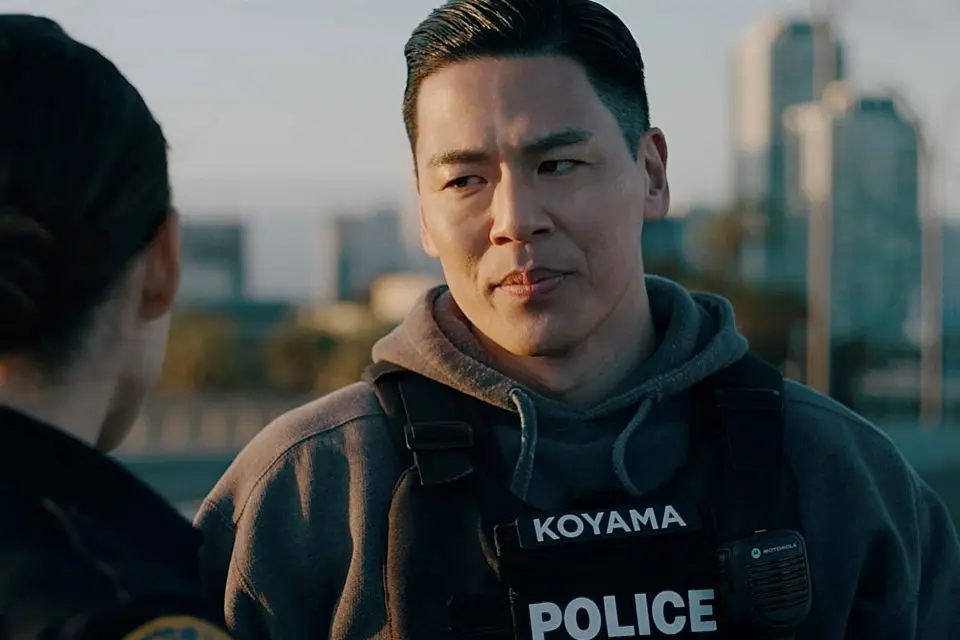
I’m just fortunate that I’ve done enough in my career so far that I can appreciate what’s going on on this show. I always say, if this was my first show it would be very spoiling, and it would probably set me up for disappointment moving forward, and I’m just fortunate that I’ve been around the block in this game, and when I come to set to feel the professionalism and maturity of all my castmates, and all our crew, and our producers, and our writers and our directors. I do not take that for granted, and then I get to go ahead and play this, this police officer, this Asian American police officer that we have not seen. We have not seen a real gritty visceral just real dude. It’s so weird to talk about this right now, because I’m from LA.
I went to high school in the bay. My second home, is in Honolulu, Hawaii. Even New York man, how many of us have never seen an Asian American police officer? I would beg to differ that everyone has seen us. The real guys out there, whether it’s literally, guys that are in uniform, or all the way up to the Federal level, like we exist. But yet Hollywood has refused to show us. Especially in this light.
So I’m not going to call myself. I’m not going to designate any names, but to be a pioneer in this role, and to kind of put us on the map finally, and to represent for all Asian American male law enforcement officers on every level like that’s truly a huge honor for me. And that’s my pressure. I just want to show the world as if the world’s seen us. That’s a sad thing. It’s not like. It’s weird to me as an Asian American artist that we haven’t even had this role exist before. So I’m just super proud, super grateful. I go to work every day knowing that I’m representing my community, and I couldn’t be more proud to do it, especially with this team.
